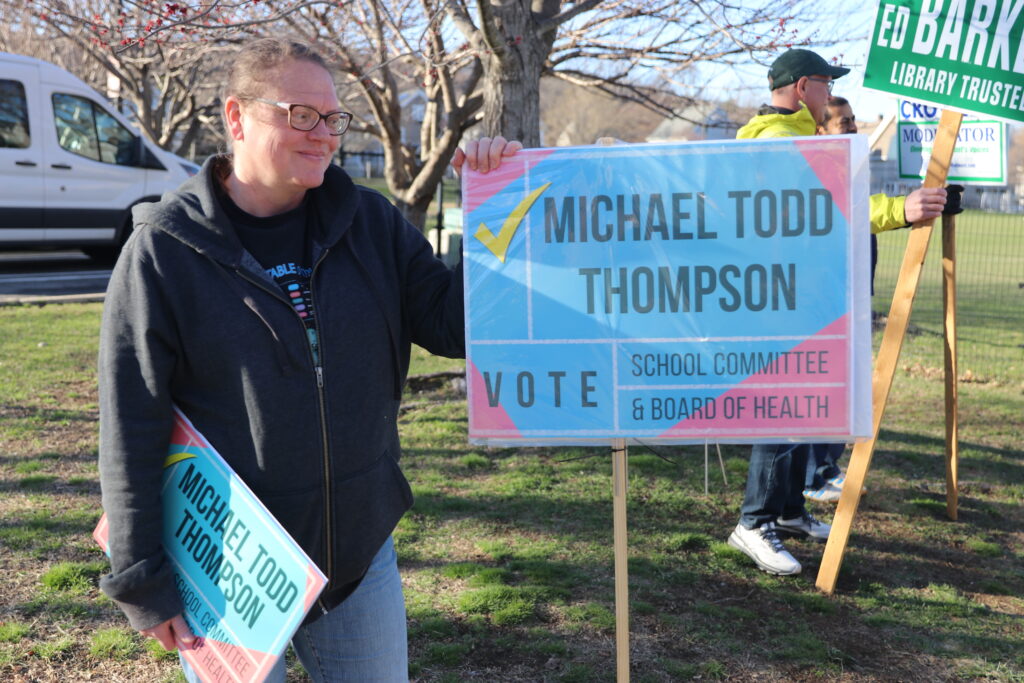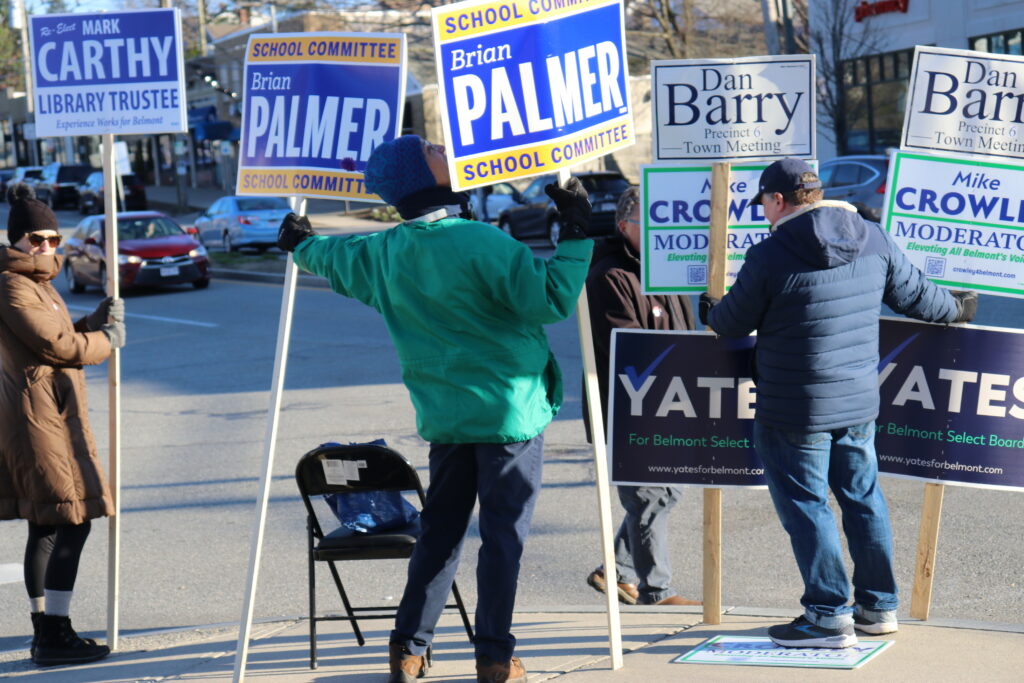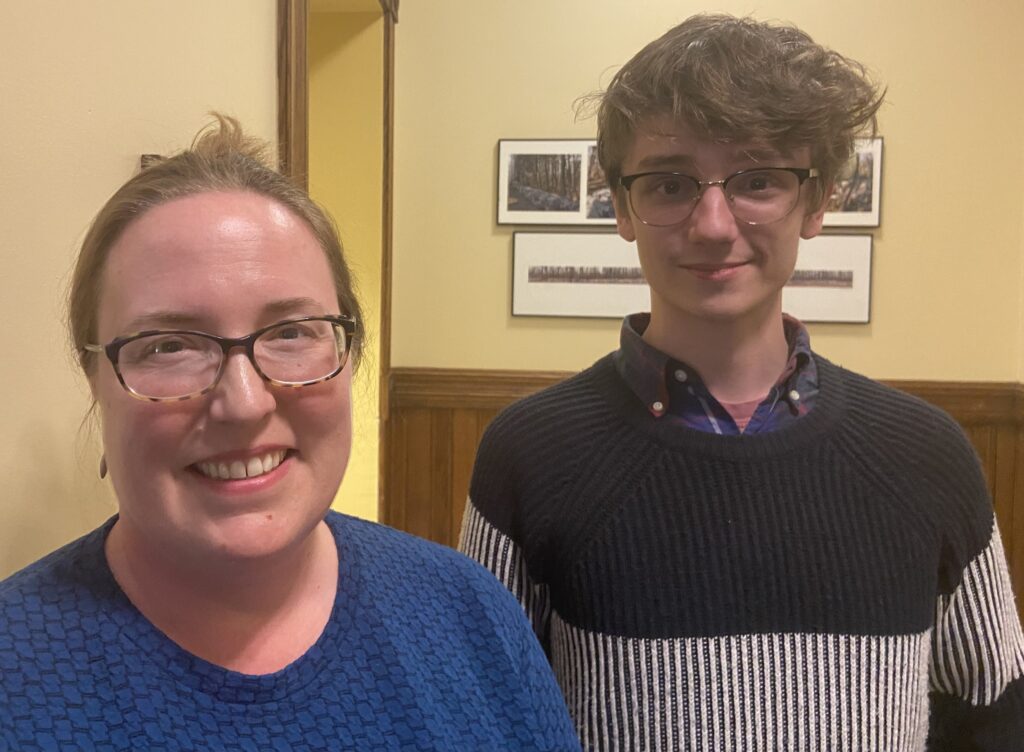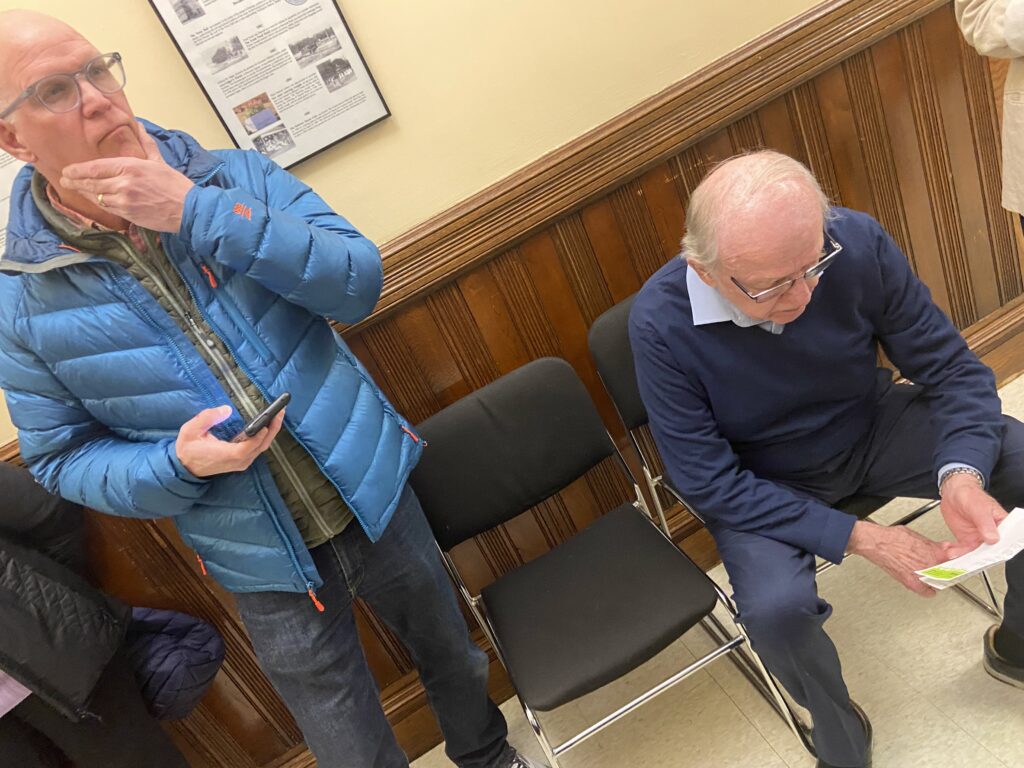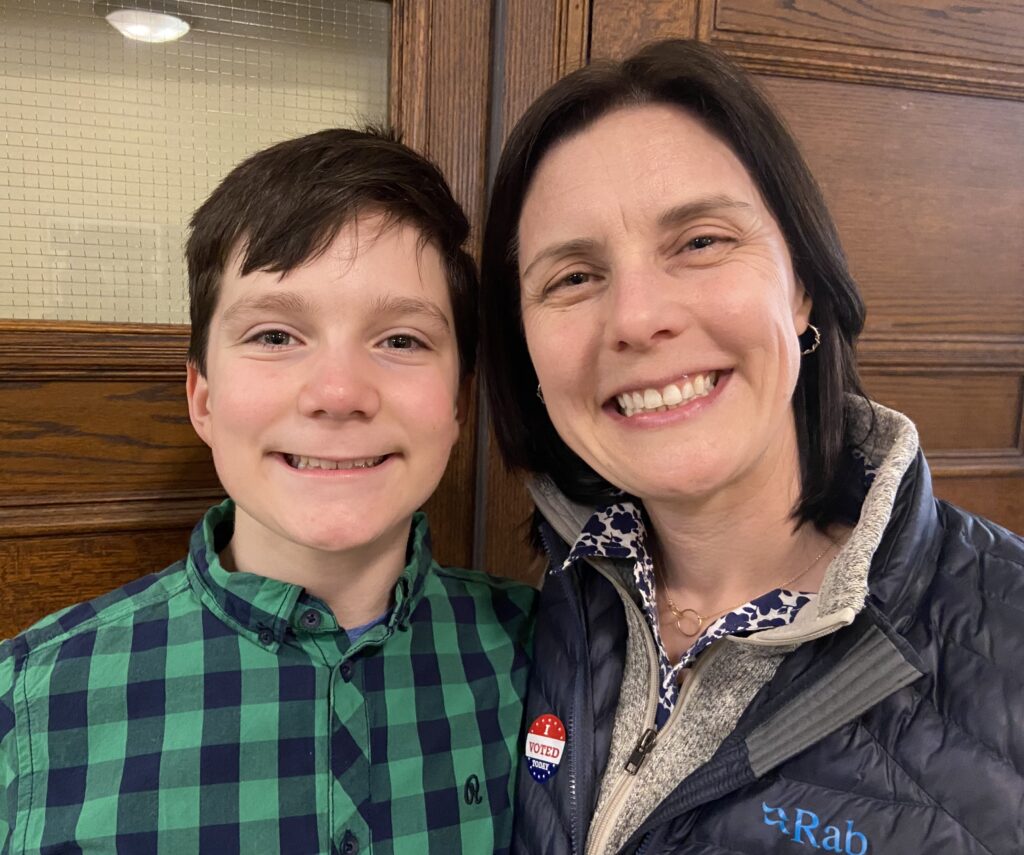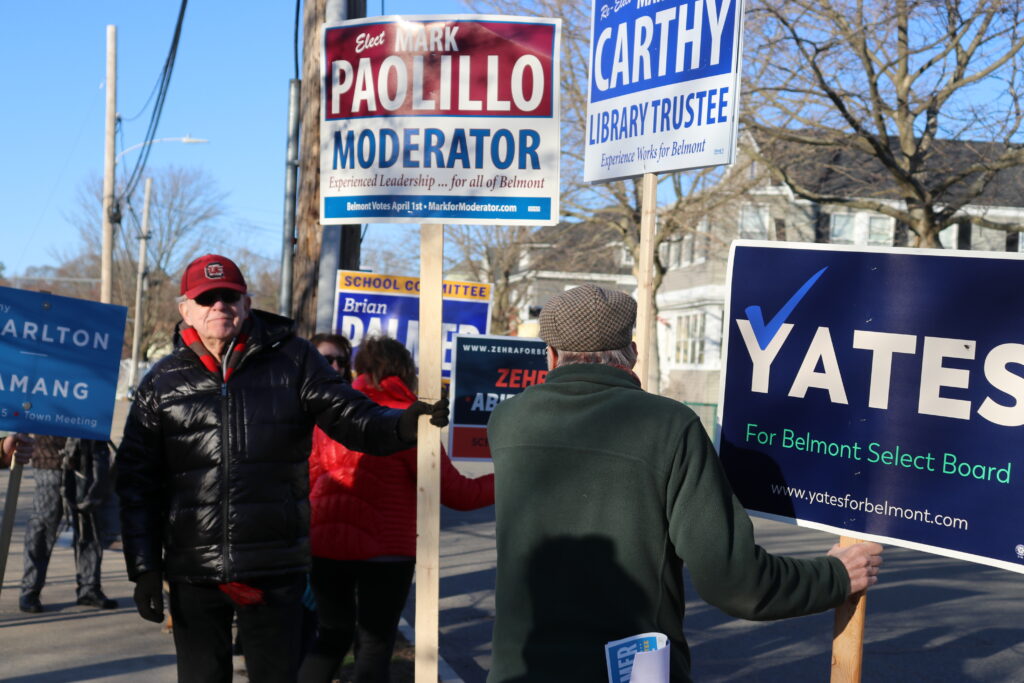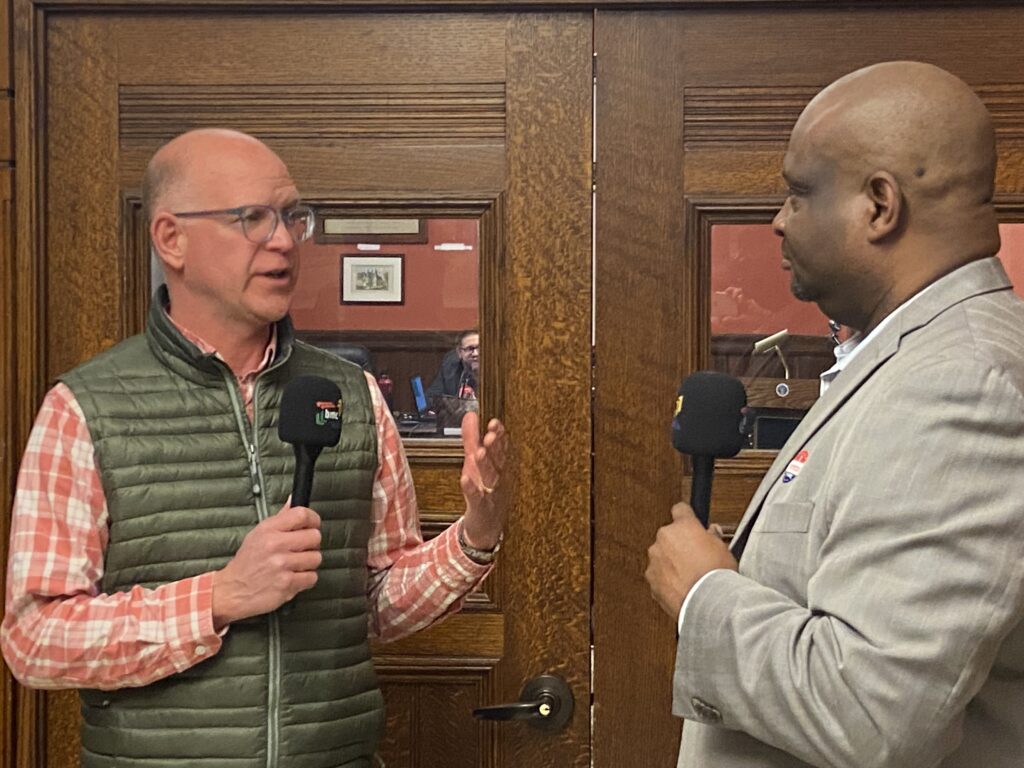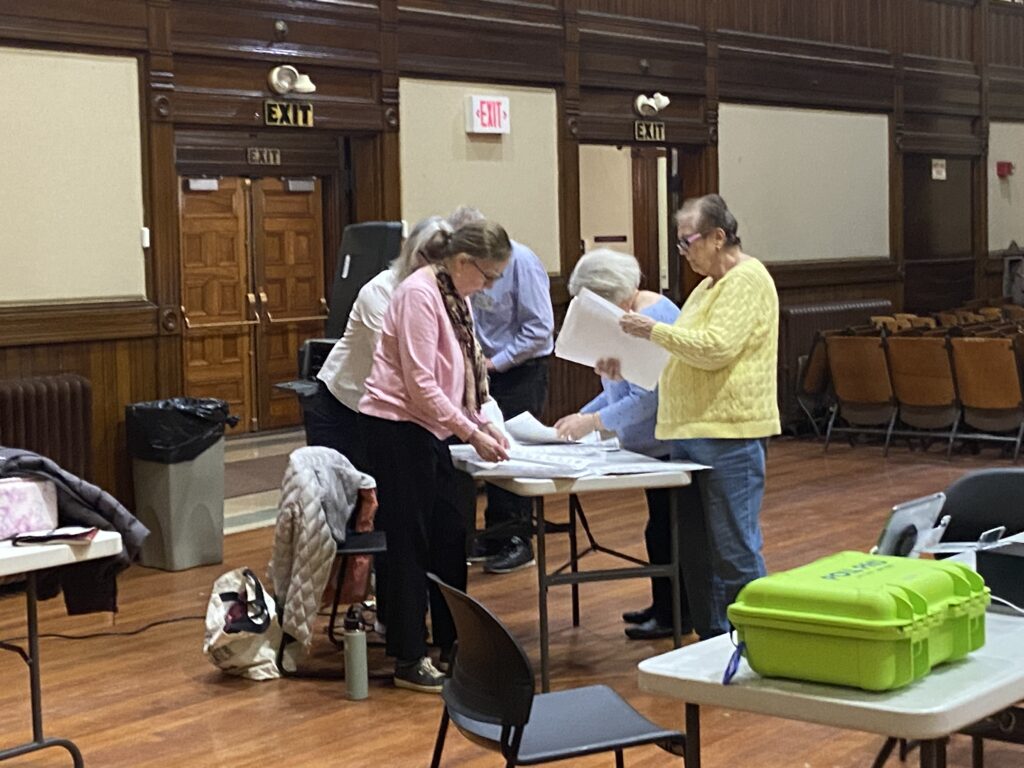Photo: Mike Crowley with the results of the Town Moderator recount which confirmed his victory, April 17.
When many believe the United States is undergoing a crisis of confidence in government, Belmont witnessed the reaffirmation of small ‘d’ democracy when, on Thursday, April 17, the town successfully proceeded – without allegations, shouting, or threats – to confirm the result of the race for Town Moderator.
After nearly three-and-a-half hours in the Town Hall auditorium, one-time school committee member Mike Crowley was declared the winner (again), receiving 2,136 votes to 2,125 for former Select Board Chair Mark Paolillo. Crowley’s winning margin increased by an extra vote from his Town Election total on April 1, while Paolillo’s tally remained the same.
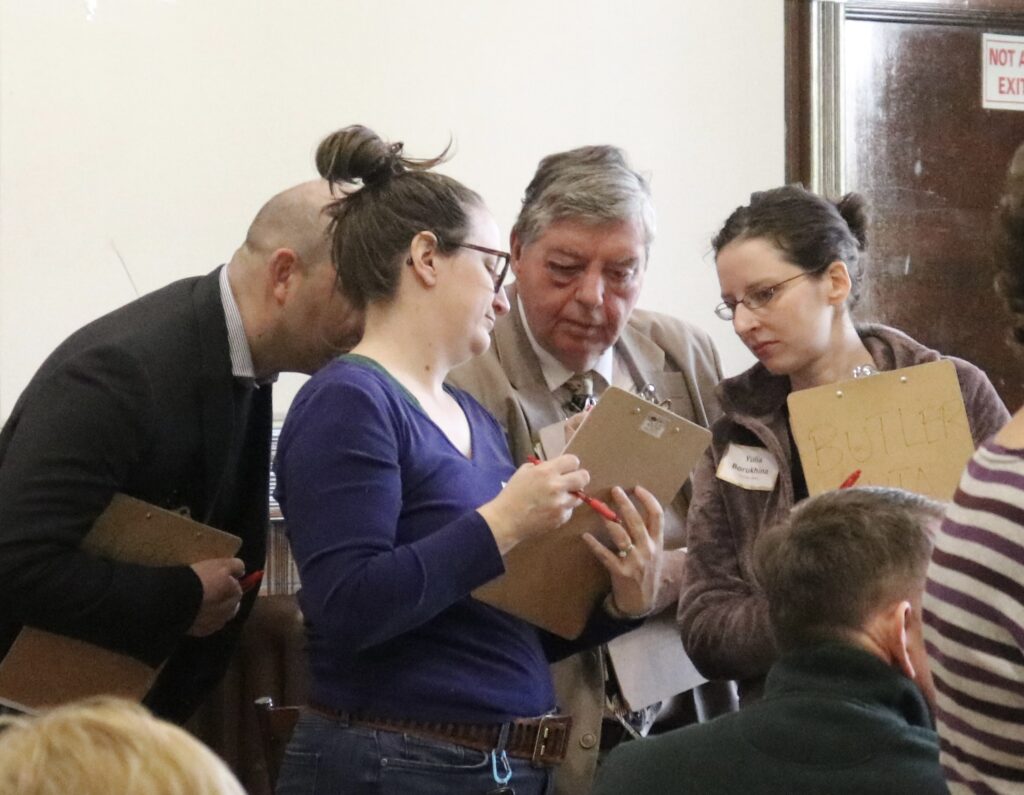
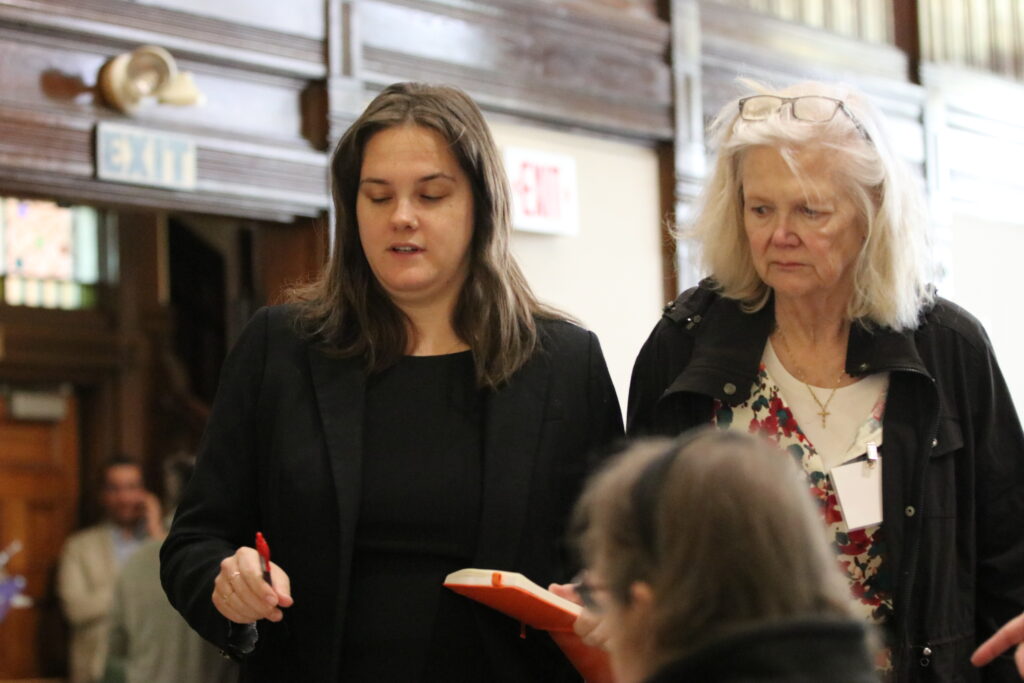
“I would like to thank the Board of Registers for their work” in promoting democracy, said Crowley after Registrar of Voters Chair Bob McGraw read the results from the town’s eight precincts.
Crowley expressed his gratitude to Town Clerk Ellen Cushman and her staff which ran the recount, his attorney, Dennis Newman, and the volunteers who came out in force to work as his vote observers.
Attorney Newman has some history with recounts: he was the lead Democratic attorney observing the critical Palm Beach review of votes in the historic Bush/Gore Presidential recount of 2000.
The day began with detailed instructions from Kristen Gagalis, an Associate at Anderson & Kreiger, which is the town’s legal counsel. The recount of nearly 5,000 votes was conducted at card tables with a reader facing a calculator. The candidates were allowed an observer at each table who could challenge any ballot they felt was incorrectly tabulated. The Registers would judge the disputed ballot.
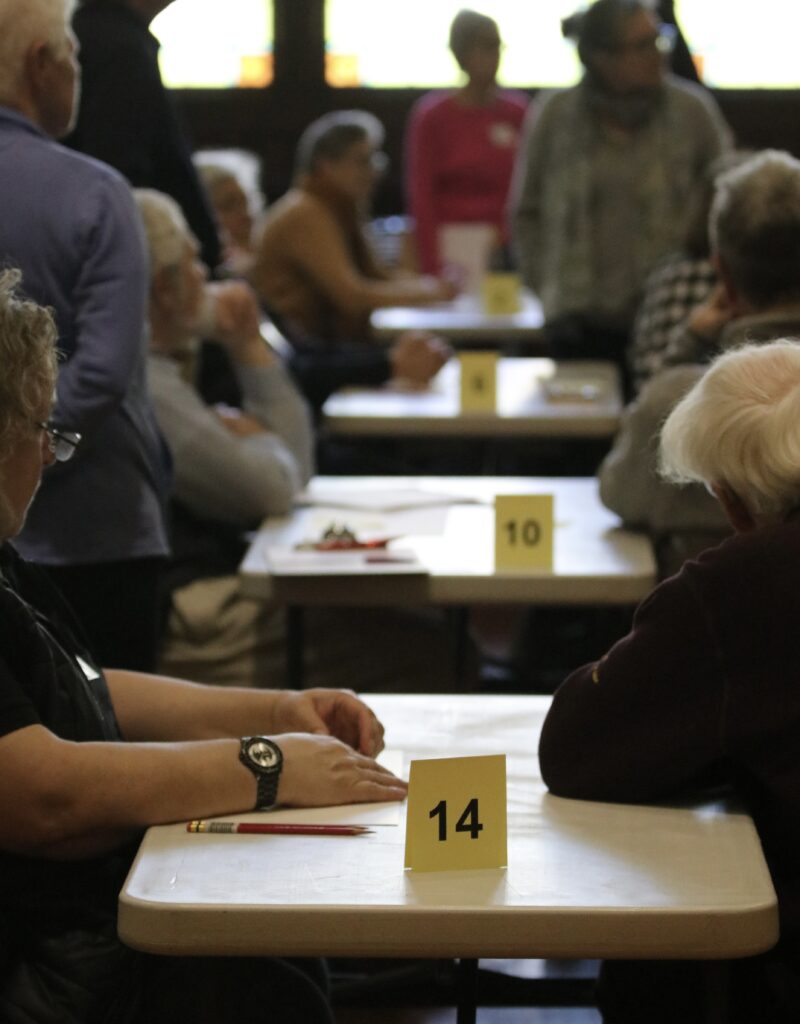
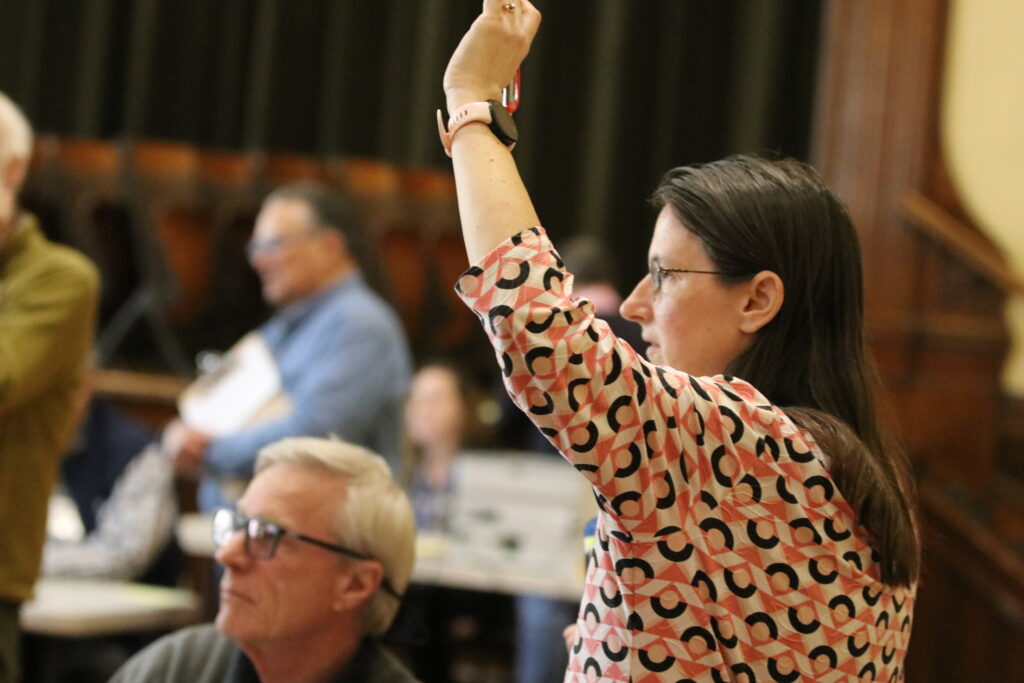
While Crowley came with two dozen volunteers serving as his observers and tabulators, Paolillo did not attend and did not appear to have sent his own set of reporters. Despite the lack of advocates on the floor, Paolillo actually picked up a vote after the first precinct—the precincts were reviewed in order from one to nine—was completed, reducing Crowley’s margin to single digits at nine.
But by the completion of Precinct 3, Crowley’s advantage had returned to 10 votes, as his observers kept a keen eye out for any mark or smudge that could go the candidate’s way. At times, Gagalis—using her pre-legal experience as a middle school teacher on cafeteria duty—would firmly remind the room the process was best served without unnecessary chatter.
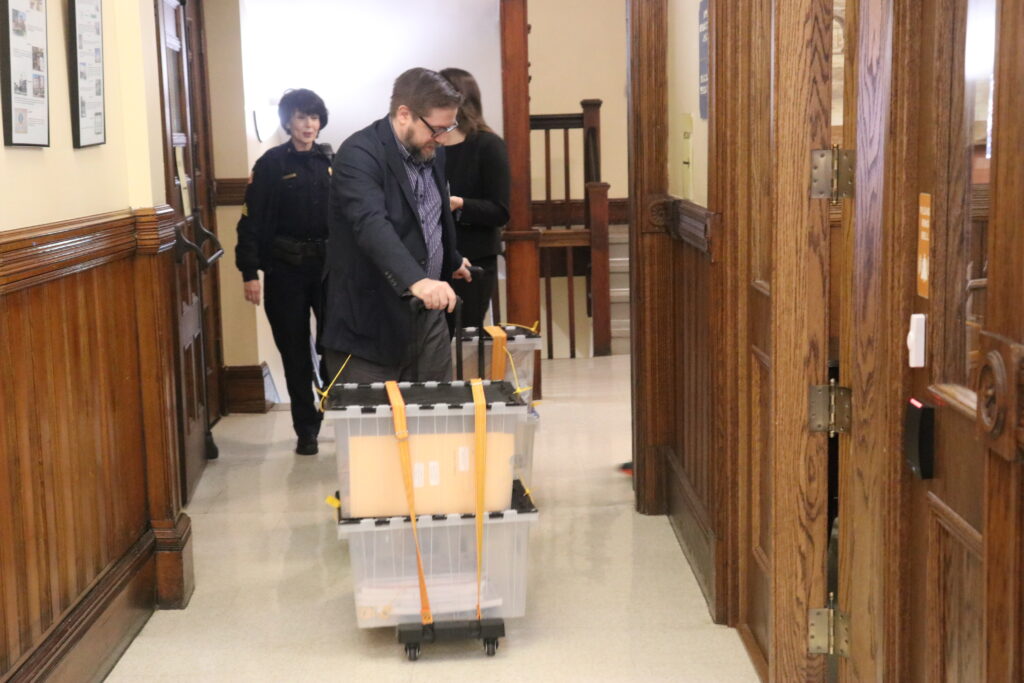
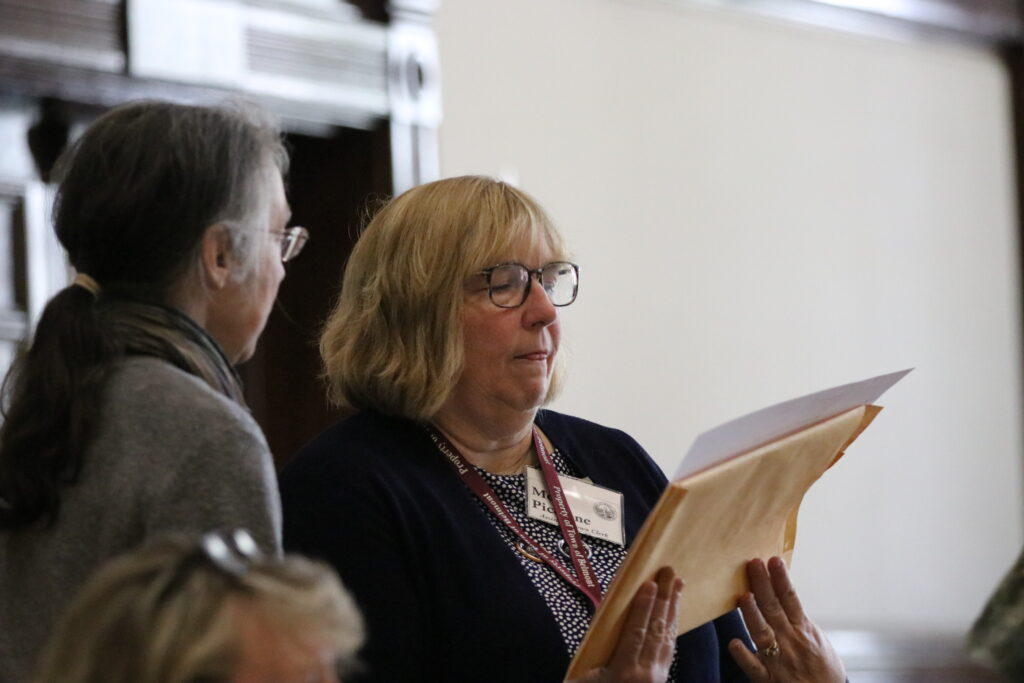
Just before noon, the final two precincts were swiftly counted without a large increase in disputed votes, which Paolillo would have needed to overturn the initial result.
“I’m very happy with the results. They confirm that the original outcome was the right one,” said Crowley.
